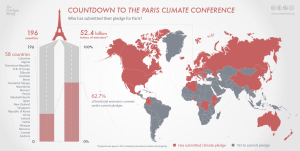8 September 2015, ARENA, Three months on and Nyngan is flying. The largest solar power plant in Australia and the Southern Hemisphere in Nyngan, NSW, is fully operational and has generated 60,000 MWh of renewable energy to date, according to the Australian Renewable Energy Agency (ARENA). Since achieving full generation in June 2015, the plant has been sending 102 MW of solar-generated electricity into the National Electricity Market. ARENA CEO Ivor Frischknecht said the successful beginning of Nyngan’s operations was a significant milestone in the development of Australia’s large-scale solar sector. “AGL’s Solar Project at Nyngan and Broken Hill represents a big investment by the company and also by ARENA,” Mr Frischknecht said. “It’s already achieving one of ARENA’s key aims of increasing the amount of renewable energy in Australia. “And the knowledge gained from its successful launch and ongoing operations will lead to further improvements in technology and reductions in costs for the sector.” The solar plant, a partnership between AGL Energy Limited (AGL) and First Solar, is expected to produce around 230,000 MWh of electricity annually which is sufficient to meet the needs of approximately 33,000 NSW homes. Read More here
hmcadmin
7 September 2015, The Carbon Brief, Bonn climate talks ask for draft Paris text. A draft international climate agreement package will be published within weeks, setting the scene for crunch UN talks in Paris in December. During negotiations in Bonn last week, countries made progress on some key sticking points and started to lay out the skeleton of the planned agreement. Yet with just five more days of formal negotiations before Paris, disagreement over many details remains profound. The co-chairs of the process will now attempt to cement progress and bridge those divides. They have been given a mandate to prepare a draft agreement by the first week of October. Parties will then start line-by-line negotiations on the draft text when they return to Bonn on 19 October. Carbon Brief summarises events in Bonn last week and rounds up reactions to the latest talks. Read More here
7 September 2015, Climate News Network, Climate talks are stuck in the slow lane to Paris. Lack of progress at the close of “unbearably tardy” negotiations in Bonn undermines hopes of a meaningful deal being agreed at this year’s crucial UN climate summit. The latest round of climate talks in the German city of Bonnhave ended with a failure to deliver common grounds for the negotiations at the UN climate summit in Paris at the end of this year. The Paris talks, involving all UN member states, are meant to deliver a draft that could lead to a new world climate treaty to replace the expired Kyoto Protocol. But experts now fear that there will not be enough time left to see a major breakthrough. Jan Kowalzig, climate change policy adviser at Oxfam, described last week’s negotiations in Bonn as “unbearably tardy”. He said: “If the negotiators keep up that slow pace, the ministers at the UN summit will get an unfinished paper that they will have to resolve with no time for reflection. The outcome will then most likely be an extremely weak new treaty that will not save the world from climate change.” Read More here
7 September 2015, The Carbon Brief, Paris 2015: Tracking country climate pledges. 31 March marked the loose deadline for countries to submit their pledges to the UN on how far they intend to reduce their greenhouse gas emissions. These promises, known as “intended nationally determined contributions”, or INDCs, will determine the success of the deal that the UN hopes to sign off in Paris in December this year. While only five countries plus the EU made the deadline, more than a hundred others are expected to filter in throughout the coming eight months. Carbon Brief is tracking the pledges made by each country. We’ll update this post as each INDC comes in. To find out exactly what an INDC is and why it matters, read our INDC explainer. Read More here

